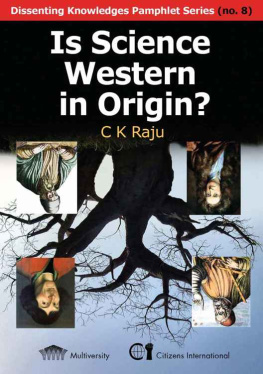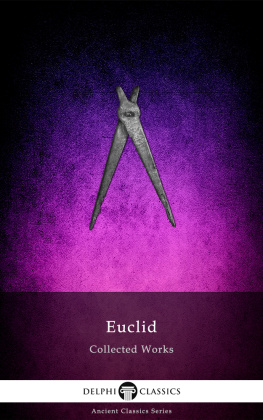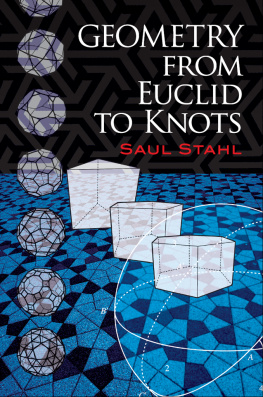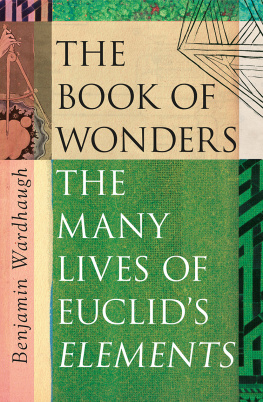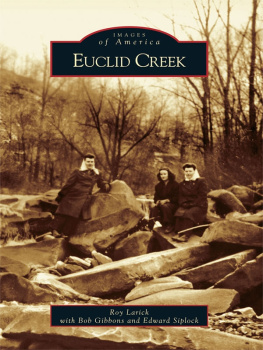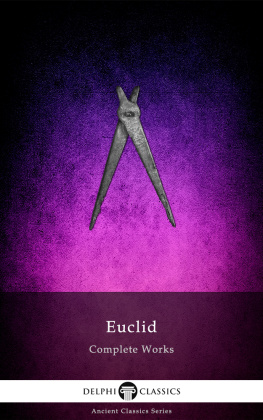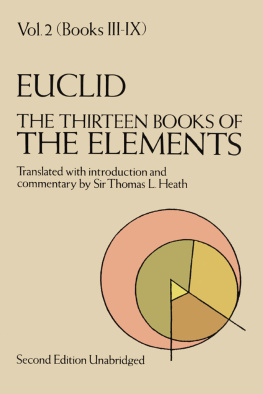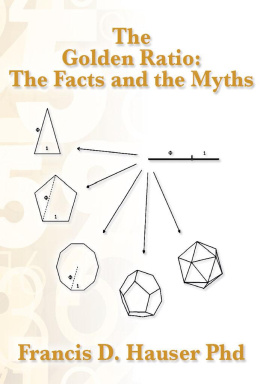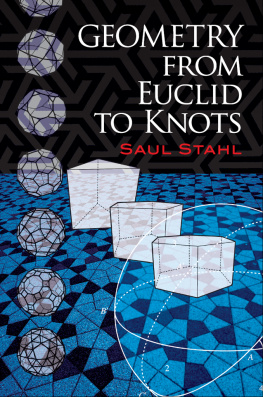
Euclidand Jesus
_______________________________________________________________________
____________________________________________________
EUCLID AND JESUS
How and why the church changed
mathematics and Christianity
across two religious wars
_________________
C. K. R AJU
M ULTIVERSITY AND C ITIZENS I NTERNATIONAL
Copyright C. K. Raju, 2012. All rights reserved.
The woman on the cover, with fire in her eyes, is an image of Hypatia by Lim Jee Yuan. In the background is the burning Great Library of Alexandria. Hypatias father, Theon, was its last librarian. The book tells Hypatias story.
ISBN-978-983-3046-17-1
Typeset by the author in 10 pt Baskerville, using LA TEX.
Prologue:
Who should read this book?
Euclid is celebrated as the father of geometry, and author of the Elements , a book once revered like the Bible, but now a school text. The story goes that he was a white-skinned man, strangely enough from Africa, who lived three centuries before Jesus.
Now, what is the evidence for this extraordinary story? Remarkably few seem to know. Most people hear the story of Euclid along with geometry lessons in school. And children dont ask for evidencedid you? This book gives you a second chance to ask that long-unasked question. What is the evidence for Euclid?
Strange things wriggle out the moment one digs for the evidence. Greek manuscripts of the Elements do not mention Euclid as its author. Commentaries speak anonymously of the author of the Elements. Now what was the terrible crime for which the author of the Elements was made anonymous? Was it just because she was a woman, Hypatia?
Why were mathematicians (or philosophers, as they were then called) so hated by church priests? Isnt mathematics universal? Today, our schools teach mathematics on that belief. But it is well known that mathematics did not develop in the same way in all cultures, so this universality is not a fact but a norm. Western scholars insist that mathematics must imitate Euclids supposed doctrine of proof, so that traditional Indian and Chinese mathematics (which had a different notion of proof) was inferior and not quite mathematics! Now, if mathematics is universal it should have developed the same everywhere. And if that did not happen, then why should Euclid be the benchmark? Why not ryabhata or Hypatia?
Strangely, the philosophy attributed to Euclid exactly fits the church theology of reason invented during the Crusades when Europe first heard of Euclid. So the demand to imitate Euclid is also an implicit demand to accept that church theology. That theology served (and still serves) as a key weapon against all non-Christians, especially Muslims, as this book explains. This has some unexpected consequences, even for Christians!
Were you put off by math in school? Are your children weak in it? This book explains why it wasnt your fault! Present-day math is difficult just because it got entangled with Christian metaphysics. But, to understand all this, it is first necessary to understand how mathematics got entangled with Christian theology across two religious wars. That is what this book explainsto those ordinary people who never learnt math properly.
Now, the thought of a religious bias in present-day mathematics surprises many people. They are unaware that the very word mathematics derives from mathesis, a term imbued with deep religious meaning since Plato, and his black Egyptian sources, down to Hypatia and her successor, Proclus. Those religious beliefs were central also to original Christianity, and to the book Elements , as its commentator Proclus states. But few know about those beliefs today for they were cursed by the church and became taboo in the West. This book aims to explain all this to a wide audience. Every true Christian too should know about this, for it shows how the original Christian doctrine was repeatedly mangled by the church, in its quest for world power.
My own reason for writing the book is the following. I believe that education must free the mind, and not enslave it. So, I always encouraged my children to question their school texts. The need to do so became particularly acute when school texts were abruptly changed by the centre-right NDA government, after it came to power in India in 1999. They wanted to instill pride in Indian culture. Undoubtedly, there is much to be proud of in Indian culture, from which Europeans learnt both arithmetic and calculus.
Later, the NDA government was replaced by the centre-right UPA government. There was no longer any question of a Hindu bias, for the new government was led by an Italian-born Roman Catholic. The school texts were again changed. My son was now in the 9th standard. His school text in math now contained a long string of images of white-skinned Greeks, described in heroic terms as the originators of mathematics. But by now my son had cast off the spell and stopped trusting his school texts. He wryly asked: why do all Greeks look alike? (Naturally one suspected that all those images were similar just because they were based not on evidence, but only on the artists racist imagination, which depicted a Caucasian stereotype.)
I took up the matter with the NCERT, the Indian government agency responsible for those texts, and also with the authors of the texts. I asked them what evidence they had for the existence of Euclid, or for the color of his skin, considering that Euclid was supposedly from Alexandria, in Africa. The authors produced no evidence. Nor did they modify the text, which still has a chapter on Euclids geometry. All they did was to replace the image of one Greek, Euclid, with a Chinese-looking one, to evade the charge of promoting racism! One of those authors now heads the NCERT.
When the school texts were first changed, it was clear to all that mixing politics with religion distorts history within a mere 5 years, and that distorted history can be a dangerous source of propaganda. But the church mixed politics with religion for the last 1700 years. It openly advocated distorted history as a weapon since its first religious war against pagans. (This resulted in the 5th c. History against the Pagans , written by Orosius, which said not a single good word about any non-Christian.) History was again distorted during the second religious warthe Crusades against Muslimsby attributing all knowledge in Arabic books to early Greeks, real or imaginary. That was when Europe first heard of the book Elements attributed to an early Greek, Euclid.
The Inquisition amplified this distortion of history. Copernicus, for example, like so many others, was too afraid to acknowledge his heretical non-Christian sources in the works of Ibn Shatir and Khwaja Nasiruddin Tusi. Thus, history was Christianized, with all world-knowledge being attributed to the theologically correct. This Christianization of history was used to justify racism by philosophers like Hume, Kant and others. Racist and colonial historians built on that legacy.
Colonialism globalised Western educationwhich was initiated by the church during the Crusades, and remained under its control for the next 9 centuries. Through Western education, that distorted history has acquired a canonical status today. I naively thought that those who opposed saffronization of history did so because they were secular. Hence, I imagined they would be equally sensitive to the possibility of Christianization of history, and the church-instigated violence which accompanied it.
I wrote about this in books, But there was no outrage this time: the Western-educated were unperturbed with false history in school texts, so long as it had a Western pedigree. They were constantly taught from childhood to rely only on Western secondary sources (as Wikipedia still teaches them), or on primary sources doctored by Western editors. So, questioning the West is taboo for the indoctrinated colonised mind produced by Western education. Those victims of Western superstitions should
Next page

